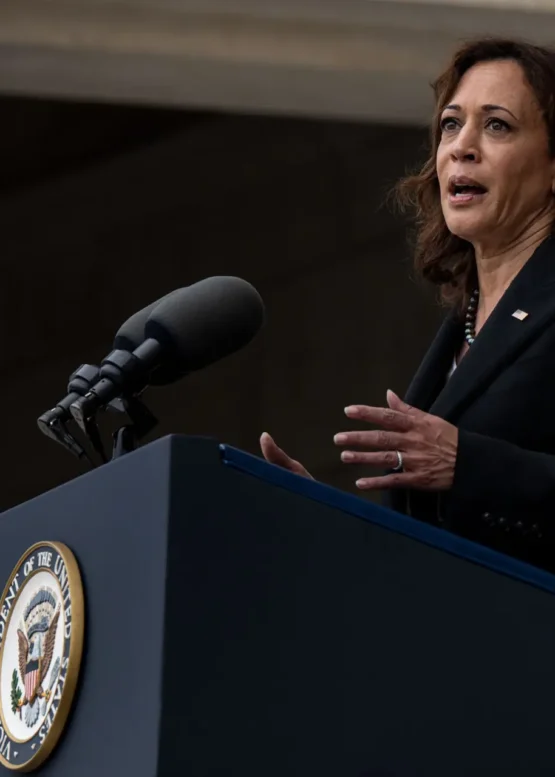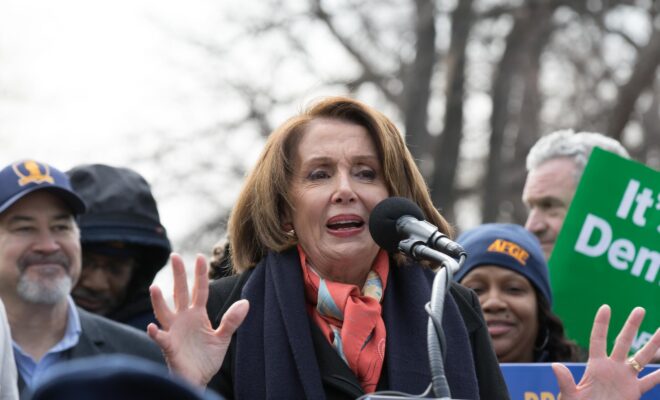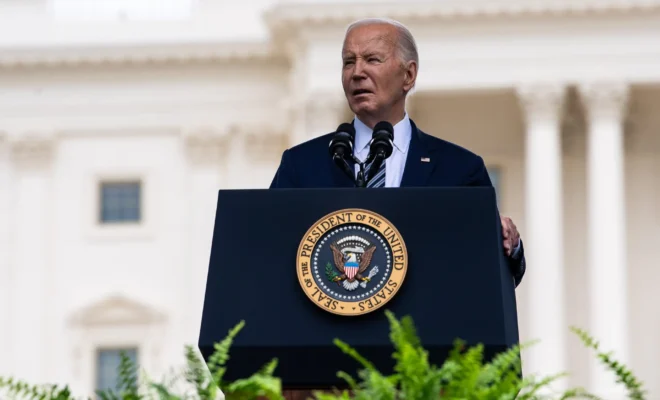Whatever worries political and market observers may have had about the House's ability to approve the debt ceiling deal were firmly and unmistakably answered on Wednesday night.
The 314-117 vote in favor of the compromise between House Republican leaders and the Biden administration allowed the fringes to go on record against the idea and everyone else to do the right thing and avoid a possible default.
That is until the Senate gets its hands on the measure. While the votes are likely there to pass the deal, Senate procedure will still allow some members to take to the floor and harangue an empty chamber about how bad this deal is.
That's every Senator's right. But get back to me when those same members have the votes to make their vision of federal spending the basis of discussion. The sad truth is that most voters want government to spend more…on programs they like or which benefit them directly.
Add those disparate policy preferences together, and the result is…fiscal recklessness. Politicians, whose career instincts override whatever principles they may espouse on the campaign trail, are deeply reluctant to cross voters who are adamant backers of some spending (like entitlements, for example). Those people know what Uncle Sam gives them, and they want to keep it. At all costs.
This also helps explain the deal under consideration is so modest in its scope and potential savings. It doesn't touch the major spending drivers of Social Security and Medicare. It boosts defense spending. That's hardly a tough-minded – never mind cold-hearted – strategy for reducing federal spending or overall government debt.
According to the Congressional Budget Office, the measures reduce spending…
…by about $1.5 trillion over the 2023–2033 period relative to its May 2023 baseline projections. Reductions in projected discretionary outlays would amount to $1.3 trillion over the 2024–2033 period. Mandatory spending would, on net, decrease by $10 billion, and revenues would, on net, decrease by $2 billion over the 2023–2033 period. As a consequence, interest on the public debt would decline by $188 billion.
Against the backdrop of a trillion-dollar budget and multi-trillion-dollar debt piles, savings measured in billions seems both paltry and a bit unreal.
But wait…what's this? House Speaker Kevin McCarthy said he just might be open to looking at ways to reform entitlement spending:
“I'm going to announce a commission coming forward from the speaker — from bipartisan, both sides of the aisle,” he added. “…The majority driver of the budget is mandatory spending; it's Medicare; it's Social Security, interest on the debt.”
McCarthy [said] only 11 percent of the budget could be negotiated during the debt ceiling talks because Biden had “walled off” parts of it – including the part that included discretionary spending programs.
Now, he said, “We have to look at the entire budget.”
This is correct. Any pol of either major party suggesting otherwise is treating voters like mushrooms: keeping them in the dark and feeding them…stuff.
The opinions expressed in this article are those of the author and do not necessarily reflect the positions of American Liberty News.
READ NEXT: President Biden Falls While Boarding Air Force One































Social Security is NOT Entitlement. Americans pay into it their entire working lives. Myself over half a century. Politicians entitle themselves.
Slowing down the rate of growth is NOT ‘cutting spending’ but sadly too many sheeple will fall for that line yet again. Think of it this way – if you get sentenced to 100 lashes and the flogger stops at 90, would you be happy?
You said “Those people know what Uncle Sam gives them, and they want to keep it.” (speaking of what you refer to as “entitlements”). As Sam says in the comment below, we paid into FICA for decades. So, have the courtesy not to call it what Uncle Sam gives to us. We were taxed. They promised it was in a lock box. They lied. Now they want to “reform” it. If they reform it by reducing it in any way, they will be out.
Here are the ways to extend the life of Social Security (into which I have been paying since 1956): (1) Have government REPAY THE MONEY TAKEN FROM THE SOCIAL SECURITY TAX FUND WHICH WAS RAIDED YEARS AGO TO BALANCE THE BUDGET! (2) Remove all of the extraneous payments which now come out of the Social Security for such items as SNAP, the Income Tax Credit, the Tax credit for children, etc. Social Security Act was set up as a retirement vehicle, not a welfare vehicle. Restore it to its original purpose.
All those add-ons should be under their own welfare benefits, not coming out of Social Security funds.
Cut fraud, waste
See CAGW.org
Sunset programs & agencies
CUT DC Beltway overhead
Cut 50T